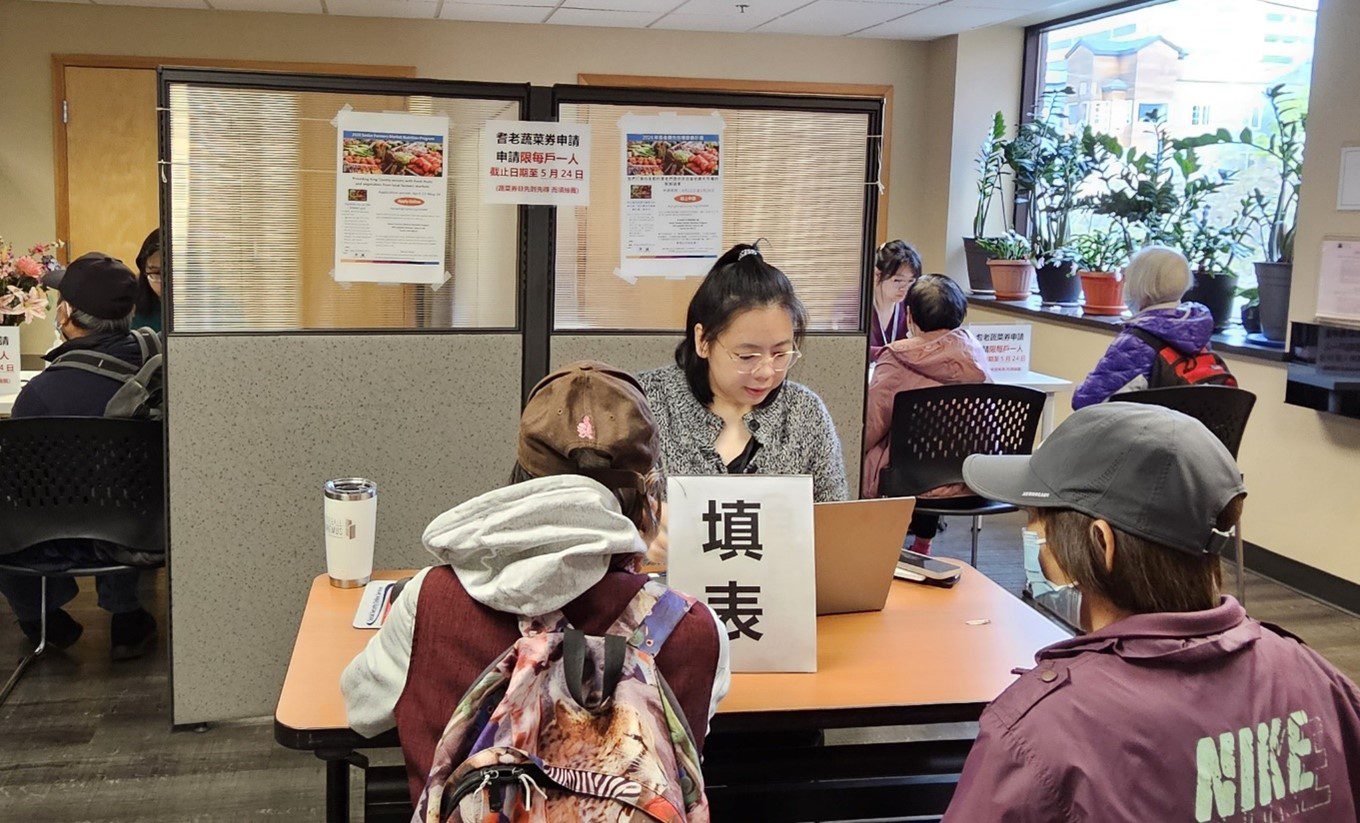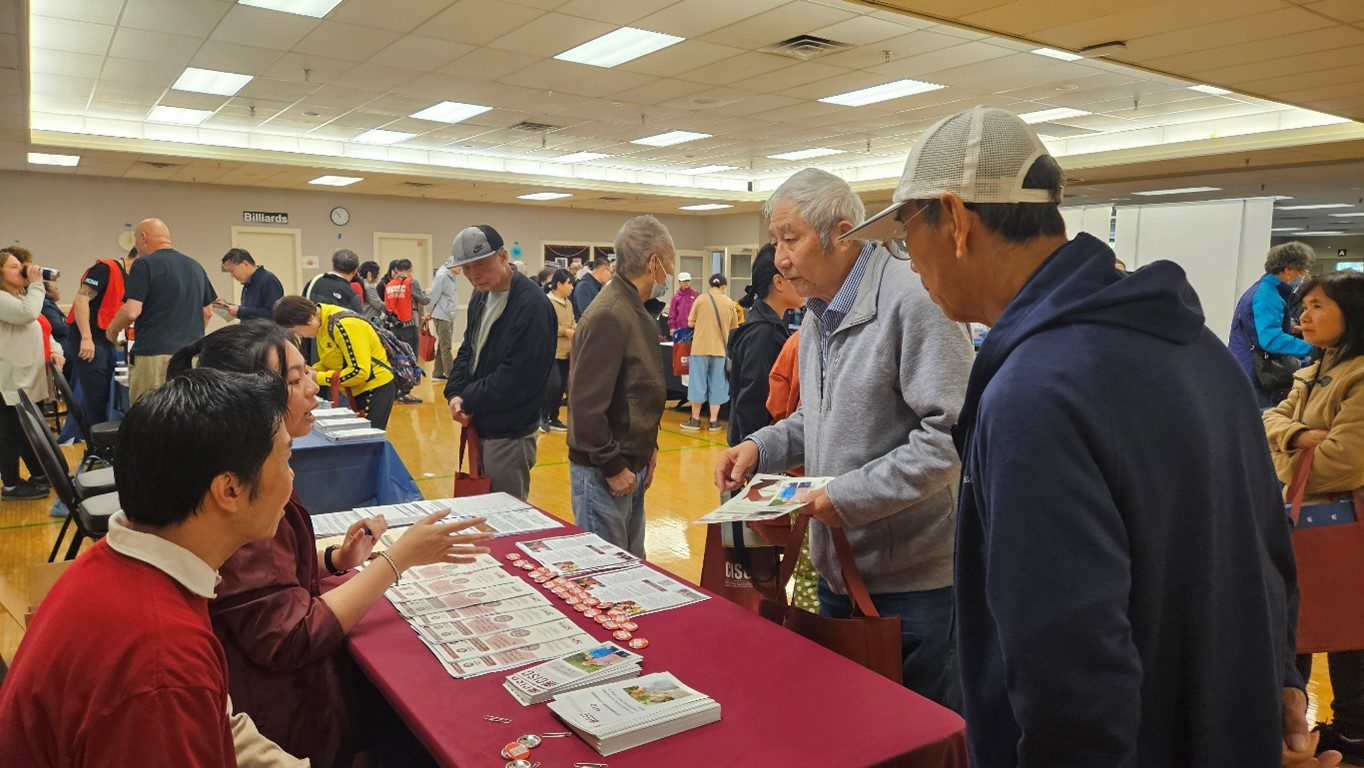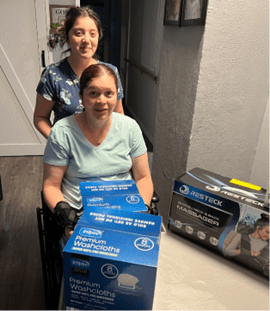Community Corner highlights the work of Seattle Human Services’ community partners in their own words. Our goal is to gather stories and photos that illustrate their amazing work on behalf of the people of Seattle. This post was written by CISC.
What is the role your organization fulfills in your community?
The Chinese Information and Service Center’s (CISC) mission is to support immigrants and their families by creating opportunities for them to succeed while honoring their heritage. We help immigrants throughout King County by providing information, referral, advocacy, social, and support services.
How does your partnership with Seattle Human Services (HSD) assist you in that role?
Our partnership with Seattle Human Services (HSD) is crucial in enabling us to provide comprehensive support to our community. HSD’s resources and collaboration help us expand our services, reach more individuals, and address the diverse needs of immigrants in King County. This partnership enhances our ability to offer programs that stabilize and strengthen our community members, ultimately helping them become self-sufficient and contributing members of society.
Through our partnership, we can serve thousands of Seattle residents. We improve the quality of life for older adults through our long-term care programs and senior center activities. We bring community members together to make new social connections, learn about health and wellness topics, and celebrate cultural traditions. Most importantly, we empower individuals to make informed decisions about their lives and enable them to thrive in their own community.
What is your organization’s origin story?
CISC was founded in 1972 by a group of energetic college and high school students who volunteered part-time in a small, donated space in Chinatown. Initially focused on assisting non-English speaking elders in the community, CISC has since broadened its scope to include a wide range of services such as adult and youth employment programs, ESL and naturalization classes, family and youth services, domestic violence and crime victim services, and a community technology center.
How has your organization grown or developed in recent years?
Over the years, CISC has expanded its services to meet the community’s evolving needs. We now offer early childhood education, youth development, family support, senior and disabled adult services, healthcare access, and anti-hate/anti-bias programs. Our bilingual staff provides linguistically and culturally appropriate services to immigrants who speak various languages, including Cantonese, Mandarin, Russian, Vietnamese, Ukrainian, and Spanish.
Why is it important for HSD and City of Seattle taxpayers to invest in community-led work?
Investing in community-led work is essential because it empowers local organizations to address the unique needs of their communities effectively. Community-led initiatives are often more responsive and culturally relevant, improving resident outcomes. By supporting organizations like CISC, HSD and the City of Seattle help to create a more inclusive and supportive environment where all community members can thrive.

How do your programs and services help to reduce the disparities experienced by people of color living in our region?
Our programs and services are designed to address the specific challenges faced by immigrants and people of color. By providing culturally and linguistically appropriate support, we help reduce barriers to access and ensure that our clients receive the assistance they need. Our efforts in areas such as education, employment, healthcare, and social services contribute to reducing disparities and promoting equity in our region.
Tell us an example of how an HSD-funded program or service impacted the life of one of your community members.
Karla’s mother, Mariah, had a stroke and became paralyzed when Karla was just 15 years old. Her journey, starting at such a young age, showcases incredible strength and dedication. Taking on the caregiving responsibility for a family member while balancing school and the emotional weight of her mother’s condition is no small feat.
The Family Caregiver Support Program (FCSP) stepping in to provide respite services in 2019 was a turning point that gave Karla much-needed relief. Over the years, with Karla’s unwavering care and the assistance of the respite workers, Mariah’s condition improved to the point where she regained some mobility in her upper body. The story highlights the value of support systems for family caregivers and how they can make a profound difference.
In 2024, that support system means Karla is now able to go back to college. It’s clear that this was more than just a victory for her education. It’s a testament to her perseverance and the power of community and programs like FCSP to uplift families facing such challenges. The FCSP case worker submitted an exception to the policy request for additional respite hours, which was approved by HSD’s Aging and Disability Services (ADS) division to help Karla achieve her dream—giving her the freedom to focus on her future while knowing her mother was well-cared for.
What motivates your staff or keeps you going?
Our staff is motivated by the positive impact we see in the lives of the individuals and families we serve. Our clients’ success stories, resilience, and achievements inspire us to continue our work. Additionally, our programs, which have been recognized by many of our community partners and funders for their excellence and quality, motivate our staff. We are driven by our commitment to creating a supportive and inclusive community where immigrants can thrive and contribute to society.

